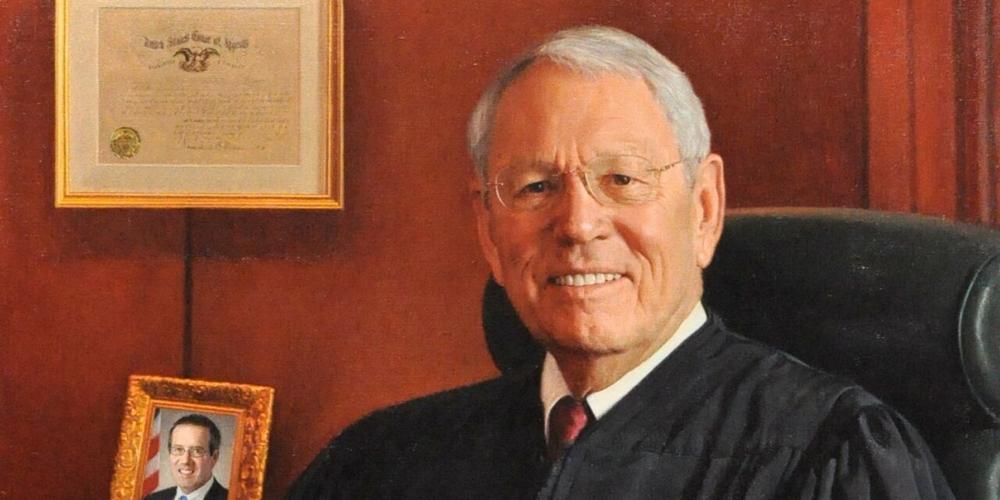
U.S. District Judge Joseph R. Goodwin
CHARLESTON – The case of a man detained by Immigration and Customs Enforcement and facing immediate deportation has been dismissed, but the federal judge still has concerns about the process.
Nolberto Gonzalez-Pablo filed an emergency petition seeking a writ of habeas corpus and an emergency motion for a temporary restraining order June 5 against Christopher Mason in federal court.

Gonzalez-Pablo
Mason is the acting superintendent of the South Central Regional Jail where Gonzalez-Pablo was held for several days after being detained by ICE last month in Mason County. McShane is acting field office director for ICE’s Enforcement and Removal Operations office in Philadelphia. Kristi Noem is the U.S. Secretary for Homeland Security, and Bondi is the U.S. Attorney General.
On June 10, U.S. District Judge Joseph R. Goodwin dismissed Gonzalez-Pablo’s case without prejudice, but he said he is “concerned that the rapid removal of aliens across the United States leaves many powerless to challenge their confinement or their status in time.”
“Today, the government whisks detainees out of their home states by the plane full — and usually in short fashion,” he wrote. “But even in quick proceedings, aliens must be afforded some opportunity to challenge their detention.
According to court filings, Gonzalez-Pablo is a Mexican citizen and a long-term resident of West Virginia. He has been living in the United States for more than 10 years. He is not a United States citizen, but his wife and two daughters are. U ntil his detention, he was the primary provider for his family because of an injury his wife had sustained.
Gonzalez-Pablo was detained May 30 and faced imminent removal. The removal was from the reinstatement of a prior order of removal issued against him more than 10 years ago in which he was forbidden from reentering the United States for 20 years.
On June 5, he filed several emergency motions alleging violations related to a restriction of his due process rights, unlawful reinstatement of a prior removal order and violation of the Immigration and Nationality Act (INA) among others.
Mason filed a response opposing the emergency motions as well as a motion to dismiss for several reasons including lack of jurisdiction. A hearing took place June 9 where Gonzalez-Pablo’s attorneys argued the court could allow him to invoke the Suspension Clause, maintain his petition for habeas corpus and the court could lawfully exercise jurisdiction.
Goodwin disagreed.
“The single issue of this matter is whether the court has jurisdiction to consider the petitioner’s motions,” Goodwin wrote in his June 10 opinion and order. “Under the Immigration and Nationality Act (INA) (and amended by the REAL ID Act), a ‘petition for review filed with an appropriate court of appeals in accordance with this section shall be the sole and exclusive means for judicial review of an order of removal entered or issued under any provision of this chapter.’”
Goodwin writes that judicial review includes habeas corpus review, but it must be filed with the Circuit Court of Appeals, not the District Court.
He also notes that if the federal government finds that an alien has reentered the country after having been removed or having left voluntarily, the prior order of removal is reinstated from its original date and is not subject to being reopened or reviewed.
“The alien is not eligible and may not apply for any relief under this chapter, and the alien shall be removed under the prior order at any time after the reentry,” the law states. “An immigration officer simply obtains the alien’s prior order of removal, confirms the alien’s identity, and determines whether the alien’s reentry was authorized.
“After receiving written notice of the officer’s determination, the alien can contest it, but if the officer ‘declines to reconsider his determination he reinstates the prior removal order.’ The alien is then removed with no right to a hearing before an immigration judge.”
Gonzalez-Pablo was found during a targeted enforcement operation in Mason. He admitted to having entered the country illegally and having no legal status. He was served with a Notice of Intent/Decision to Reinstate Prior Order, which he signed.
Although the parties did not address habeas corpus jurisdiction in terms of recent Supreme Court rulings, Goodwin said he found that another reason to dismiss the case.
“By statute, writs of habeas corpus may be granted by the district courts ‘within their respective jurisdictions,’” he wrote. “The Supreme Court has reiterated that for ‘core habeas petitions,’ ‘jurisdiction lies in only one district: the district of confinement.’ …
Here, Gonzalez-Pablo filed his emergency briefs in the Southern District of West Virginia because from May 30, 2025, to June 5, 2025, he was detained in the South Central Regional Jail in Charleston. Those emergency motions were filed on June 5, 2025, around 11 a.m., but he already was in transport to the ICE detention facility in Philipsburg, Pennsylvania.
“When the court ordered petitioner not to be removed from the jurisdiction, petitioner had already been transported out of the jurisdiction for hours,” Goodwin wrote. “Although there is no evidence that the government has acted in bad faith, I share in part the views expressed in Justice Sotomayor’s dissent in Trump v. J.G.G.
“I believe that when the government seeks to avoid judicial review and acts so swiftly as to deprive detainees access to the Great Writ, the Suspension Clause is implicated.”
A court can retain jurisdiction if the petitioner invokes the Suspension Clause to pursue habeas relief if the citizenship and status of the detainee and the adequacy of the process through which that status determination was made, if the nature of the sites where apprehension and then detention took place and if the practical obstacles inherent in resolving the prisoner's entitlement to the writ.
Still, Goodwin says Gonzalez-Pablo has no special immigration status and has now been subject to multiple removals and bars to re-entry.
At the hearing, Gonzalez-Pablo asked the court to retain jurisdiction because of the need for time to engage in discovery and his family’s need for him to remain home and work.
“I am sympathetic to both arguments, however, they fail to meet the harsh structure of the removal statutes,” Goodwin wrote. “None of this is to say that the Suspension Clause cannot apply in other factually distinct re-removal proceedings. … Additionally, I do not suggest that the courts allowing petitioners to invoke the Suspension Clause are wrong.”
Goodwin wrote that courts must ensure aliens can exercise their rights under the Constitution.
“The Suspension Clause serves this very purpose: to be a ‘critical check on the Executive, ensuring that is does not detain individuals except in accordance with the law,’” Goodwin wrote. “On its face as raised in this court, existing law requires the dismissal of this matter for want of jurisdiction.
“That said, every court has an independent duty to uphold and support the Constitution. The Executive and Legislative Branches are given great latitude to regulate immigration into the United States. Though invocation of the writ is not appropriate in this case, it remains a constitutional safeguard for others across the country.”
U.S. District Court for the Southern District of West Virginia case number 2:25-cv-00368










